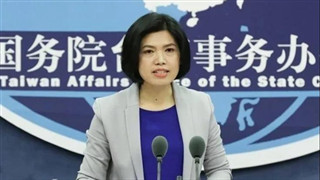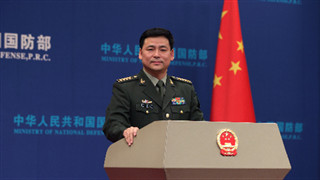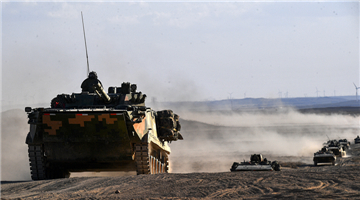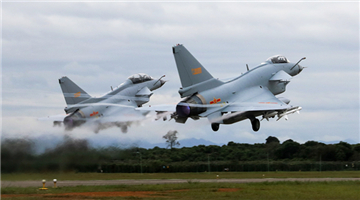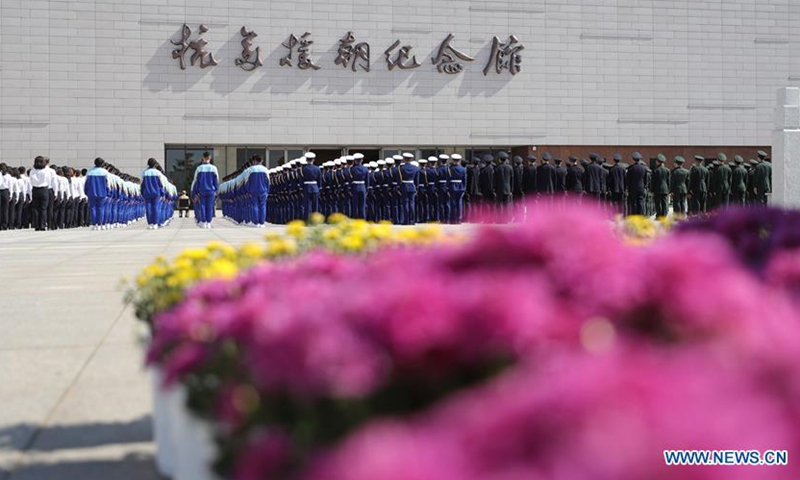
By Leng Shumei and Wan Lin
Chinese people have been commemorating the spirit of the War to Resist US Aggression and Aid Korea (1950-53), also known as the Korean War, which experts said is especially important today to boost people's courage and resolve in safeguarding their national interests in the face of US suppression.
This year marks the 70th anniversary of the war.
The wave of remembrance was triggered on Saturday by media reports saying that a Memorial Hall of the War to Resist US Aggression and Aid Korea on Saturday in border city Dandong, Northeast China's Liaoning Province, had been reopened after renovation.
Covering an area of 23,800 square meters, the hall is exhibiting more than 1,000 pictures and 1,600 relics to showcase the magnificent history of the war, according to the website of the hall.
Drawings and sculptures to pay tribute to heroes of the war like Yang Gensi and Qiu Shaoyun are also on display at the hall.
Zhang Xiaoying, a deputy director of the hall who is in charge of the exhibitions, told the Global Times on Sunday that they are still collecting relics related to the war to preserve its precious memories and tell its history to the public.
The visit to the museum was very impressive, as the items on exhibition vividly brought the history from their textbooks to life, said Gao Wenxin, a junior student who went to the museum with her friends on Sunday.
She said the museum was filled with visitors and tickets have all been sold out for the next two days online.
First established in 1958 and moved to the current site in 1993, the memorial hall closed in late 2014 for renovation, according to the Xinhua News Agency.
Visitors can visit the hall for free but have to make reservations one to seven days in advance. The hall only receives 3,000 visitors for online reservation per day, according to the website.
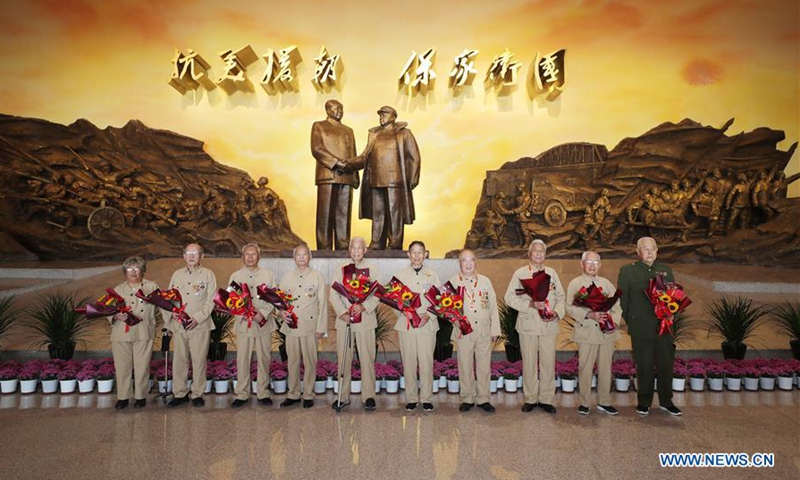
Guo Guolian, an 87-year-old veteran who fought in the war, visited the new hall on Saturday.
"I was in North Korea for nearly 50 months. I miss my sacrificed comrades. Today, we should use the spirit of the War to Resist US Aggression and Aid Korea to realize what they did not finish," Guo was quoted as saying by China Central Television.
"A tribute to the heroes!" "It is your sacrifice that brought about decades of peace for China!" netizens commented on China's Twitter-like Sina Weibo.
Some netizens noted that they strongly feel the need to carry on the spirit of the Korean War in the face of US suppression of China during the trade war and the COVID-19 pandemic.
"The core of the spirit of the Korean War is the courage and resolve of the Chinese people to defend the country in the face of external threats, even when the gap in strength between us and the enemy is very large," Lü Chao, a research fellow at the Liaoning Academy of Social Sciences, told the Global Times on Sunday.
After decades of peace and friendly exchanges with the US, some young Chinese people have cultivated an attitude of worship or fear of the US due to the latter's strength, neither of which is right given US suppression nowadays, Lü said.
"We should bravely defend our national interests, not be afraid of US' blocks and suppression and fight back," he noted.
On October 19, 1950, the Chinese People's Volunteers crossed the Yalu River, which marks the border between China and North Korea, to battle the US-led UN forces in North Korea. Chinese forces drove the US back to the 38th Parallel at the cost of at least 190,000 Chinese lives.
The middle and lower reaches of the Yalu River are located in Dandong.
A film about the war named Jin Gang Chuan, jointly directed by Guan Hu, director of the hit film The Eight Hundred, Guo Fan, director of sci-fi film The Wandering Earth, and Lu Yang, director of Brotherhood of Blades, is also reportedly being shot in the city. The film is scheduled to be released in cinemas this year.
On Saturday, a farewell ceremony for former People's Liberation Army Air Force commander and First Class Colonel General Wang Hai was also held in Beijing. Wang died on August 2 at the age of 95 in Beijing.
During the Korean War, Wang shot down or damaged nine aircraft from the allied forces. The brigade Wang led was honored for downing a total of 29 allied aircraft.



